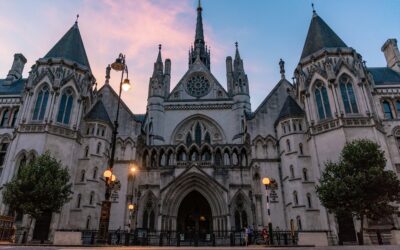What were the facts of this case?
The intended parents were both British, although the intended mother was originally from another country, known only as ‘country Z’ in the judgment, where the surrogacy took place. Her sister’s nanny, who had worked for the family in country Z for many years and had heard about the intended parents’ failed fertility treatment and miscarriages, offered to act as their surrogate.
The intended parents gratefully accepted her offer and fertility treatment was provided in country Z. When their little boy was born the British parents registered their names on the birth certificate in country Z, something they believed to be legally permissible, although it later transpired that their failure to declare the surrogate as the mother may have involved a breach of the law.
The underlying legal difficulties had in practice left the little boy stranded in country Z since his birth in 2018. By the time the family court made the parental order in August 2020 the boy’s British passport had still not been issued by the Passport Office.
What decision did the court make?
Mrs Justice Theis, in making the parental order which finally made the intended parents the legal parents and confirmed their son’s British nationality, considered each of the requirements of section 54 of the Human Fertilisation and Embryology Act 2008 carefully.
She was satisfied about the parents’ biological connection and domicile in the UK, said she could permit the application to be made even though it was commenced after six months, and determined that the little boy had his home with the applicants albeit that the intended father had been separated from the rest of the family for some time by COVID travel restrictions.
She also carefully considered whether the surrogate had given full and informed consent to the parental order, and whether the payments made overbore her will, given the informality of the surrogacy arrangement and the potential imbalance of power between the parties.
The public policy implications of the court’s decision
Importantly, Theis J also considered the public policy implications of the court’s decision. Public policy essentially means the court’s concern not to make decisions which inadvertently encourage illegal or unethical behaviour. In this case, the court needed to consider (for the first time in an international surrogacy case) whether there was any illegality in country Z and, if so, whether that would automatically bar the court from making a parental order.
Expert evidence from country Z confirmed that the birth registration had potentially involved criminal offences by the parents, surrogate and the hospital involved, and that separately the surrogate may have also broken the law in giving up the child. However, there was no suggestion the intended parents had acted illegally deliberately or knowingly. While the court was of course concerned not to encourage other parents to break the law, it had to consider their conduct in context and weigh this with the welfare of the child which was the court’s paramount consideration. As she said:
“Within this context the court needs to consider the issue of public policy and, whilst there is no suggestion that the applicants have acted other than in good faith it may be said that they turned a blind eye to making inquiries about the position, perhaps fearing what the answer may be. By then they had endured enormous difficulties in fulfilling their wish to be able to have a family of their own. There is no suggestion that they were other than open with the clinic and the hospital in country Z who, as Ms Roddy observes, have exercised at least a tacit approach to the surrogacy. It is accepted this case involves a breach of the law in country Z when X’s birth was registered, albeit unknowingly on the part of the applicants at the time, and the issues raised by the relative in balance of power between the applicants and the respondent. The issue is how much weight should the court give to these public policy concerns in the context of an application where the court is required by law to have regard to the lifelong welfare needs of X, in accordance with the provisions of s.1 of the Adoption and Children Act 2002.”
Answering the question of how the court should approach the issues of the case
To answer the question of how the court should approach these issues, Mrs Justice Theis looked beyond the existing case law on surrogacy and drew on foreign adoption cases which had considered the court’s approach to public policy concerns.
In one example case, applicant adopters had entered into an illegal private adoption arrangement by paying a pregnant woman £1,000, arranging for her to give birth in Germany and then bringing the child into the UK illegally, all because they knew they would not (due to age and health issues) otherwise be approved for adoption. This was clearly not conduct the court wished to endorse or encourage, but nonetheless the family court made an adoption order in the applicants’ favour because the child’s welfare took priority. The case, among others, demonstrated quite how egregious a breach of law needed to be to prevent the family court making an order which was otherwise in a child’s best interests.
In this case, Mrs Justice Theis was clear that there was a far less worrying breach of public policy. The intended parents had not lied to medical professionals or the authorities and, although they might be criticised for having turned a blind eye to certain questions they should have asked, they had not knowingly broken the law and had acted in good faith.
In addition, their actions needed to be weighed against the consequences for their child since without a parental order the child would have an unresolved legal status permanently. It was clear that the order was in his best interests as, she said, “it is obvious that X has thrived in the applicants’ care”. She found that there was no automatic rule that illegality prevented the court from making a parental order and that, on the facts of this case, the intended parents’ breach of public policy was not so egregious that it should prevent the court from doing so.
What is the significance of the case?
The case is unusual on the facts, but provides a useful guide to how the court will deal with any cases in which intended parents have done anything illegal or unethical in the course of conceiving a child through surrogacy.
Other intended parents should be warned that any illegality will be looked at very carefully by the court, which will need to weigh up their child’s welfare and their conduct before making an order. Parents who have broken the law unknowingly and have otherwise acted in good faith (like the parents in this case) will not be automatically barred from being granted a parental order, but there may be cases in which an ‘egregious’ breach of public policy could prevent the court from making an order even if it is in the child’s best interests.
It reinforces the message that intended parents should take care to investigate the legal basis of their plans in both the UK and their destination country before embarking on a surrogacy arrangement. However, it is important to acknowledge that parents through surrogacy (like the parents in this case) often follow the paths they do in desperation, and because they believe they have no other options to become parents.
Turning a blind eye to potential legal difficulties or other complications is not uncommon in this context. The shortage of UK surrogates and the absence of a safe regulated system at home is what drives parents to look overseas and to enter into surrogacy arrangements which might otherwise be considered ill-advised. So while this judgment provides a useful guide to how the court will navigate surrogacy cases which raise public policy concerns in the future, the wider solution also needs to be better regulation of surrogacy in the UK.
The Law Commission’s report on updating surrogacy law is eagerly awaited in early 2022, and we certainly hope that the reforms it recommends will make UK surrogacy more accessible and support those going overseas to surrogacy destinations in which surrogacy is legal and ethical, so the family court will not in the future again need to untangle the complications which arise in a case like this one.
The UK’s leading surrogacy lawyers
Find out more about how we support families through surrogacy



